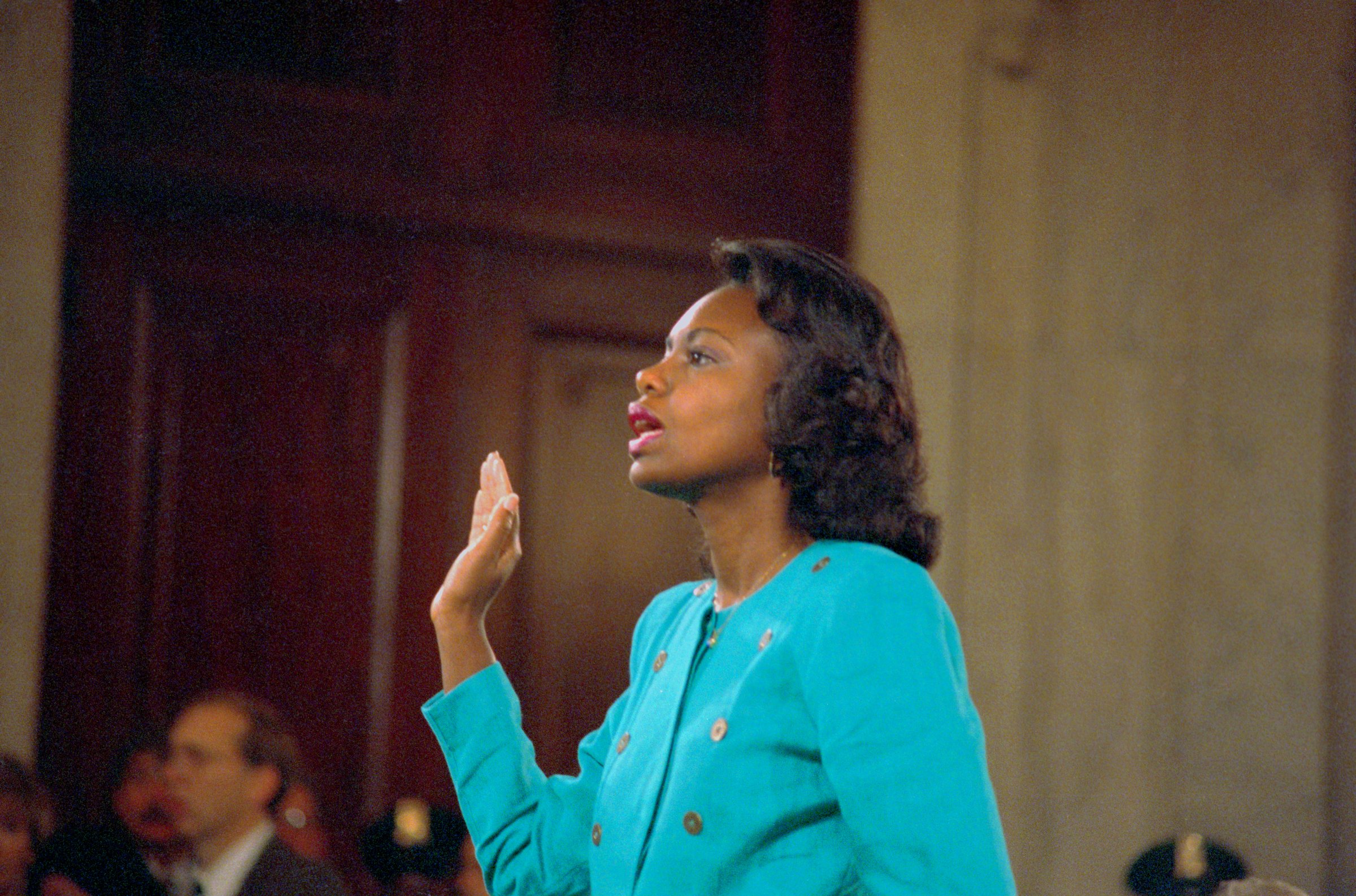
Ambassador Sherman served as Under Secretary of State for Political Affairs from 2011-2015 and was the lead negotiator for the Iran nuclear agreement. She is now Senior Counselor at Albright Stonebridge Group.
Twenty-six years ago, while a partner in a Democratic media consulting firm, I was called by a professional friend and asked if I’d spend a few days helping Anita Hill and her team manage the upcoming Senate hearing on the allegations Hill had made about Clarence Thomas, then a nominee for the Supreme Court. Hill’s private allegations to the Committee and to the FBI had been leaked to the press, and the Senate had hastily organized a long weekend’s Judiciary Committee hearing to be led by then chairman Senator Joe Biden and ranking Senator Arlen Specter.
Hill had alleged that Thomas, while her boss at the Department of Education and the Equal Opportunity Employment Commission, had sexually harassed her with pornographic suggestions, including descriptions of his own sexual prowess. Hill had a very competent legal team from Harvard and Georgetown but needed someone who knew Capitol Hill, could help them get office space, understood the procedures and could deal with the Senators. I was honored to be part of the team, albeit in a support role.
Almost immediately, it became apparent that Senator Biden thought he was conducting a hearing and Senator Specter thought he and the Republicans were conducting a trial. The Senators agreed that Thomas could testify first, allowing him to continue the assertion of power over Anita Hill. The Senate committee, all white men, seemed to presume that Thomas was right and Hill was wrong; that if she felt harassed, she misinterpreted Thomas’ actions, was retaliating for some promotional reason or simply had unfulfilled sexual fantasies of her own. The Democrats sought to be fair to Thomas; the Republicans fought to convict Hill. The Republicans succeeded.
Rereading the testimony and the commentary of the times seems almost perversely quaint in the aftermath of the Harvey Weinstein revelations. Witnesses at the time believed Hill was lying because she followed her then-boss from the Department of Education to the EEOC, much like one actress after another chose potential stardom over potential targeting by the industry and humiliation at events. Witnesses believed Hill was lying because not every woman working with Thomas had the same experience and had not seen or felt what Hill saw and felt, much like women stars voice their horror now at what colleagues had endured for years. And all the white men on the Judiciary Committee, like the men in Hollywood, saw power in the accused, but they failed to see that the woman who had to recount the unaccountable act of a man deserved power, too.
Just a few months after this depressing episode in American sexual harassment history, I sat before Senator Jesse Helms, then the Chairman of the Senate Foreign Relations Committee, as he led the confirmation hearing for my nomination by President Clinton to become Assistant Secretary for Legislative Affairs for the Department of State. The hearing was not about national security and foreign policy, the basis for the position I was to assume and for which I was qualified. It was about Anita Hill. Using excerpts from David Brock’s book, The Real Anita Hill, which Brock has since recanted, Helms asked if I would lie to the Senate Foreign Relations Committee the way Anita Hill had lied and I had lied for her by supporting her effort. I responded that Anita Hill had not lied and therefore I had not and would not lie to the committee.
That hearing and the Clarence Thomas hearing, so long ago, did give lie to the reality in which we clearly still live. Twenty-six years ago, and forever before then, women like Anita Hill hesitated to come forward. Even Hill’s lawyerly self wondered if her experience rose legally to sexual harassment. It was sexual harassment; it still is today; and it will still be tomorrow. Alas, I have taken out my pink ‘I believe Anita Hill’ button and pinned it to my jacket yet again. In the wake of all of the Harvey Weinsteins, maybe we all should.
More Must-Reads from TIME
- Donald Trump Is TIME's 2024 Person of the Year
- Why We Chose Trump as Person of the Year
- Is Intermittent Fasting Good or Bad for You?
- The 100 Must-Read Books of 2024
- The 20 Best Christmas TV Episodes
- Column: If Optimism Feels Ridiculous Now, Try Hope
- The Future of Climate Action Is Trade Policy
- Merle Bombardieri Is Helping People Make the Baby Decision
Contact us at letters@time.com